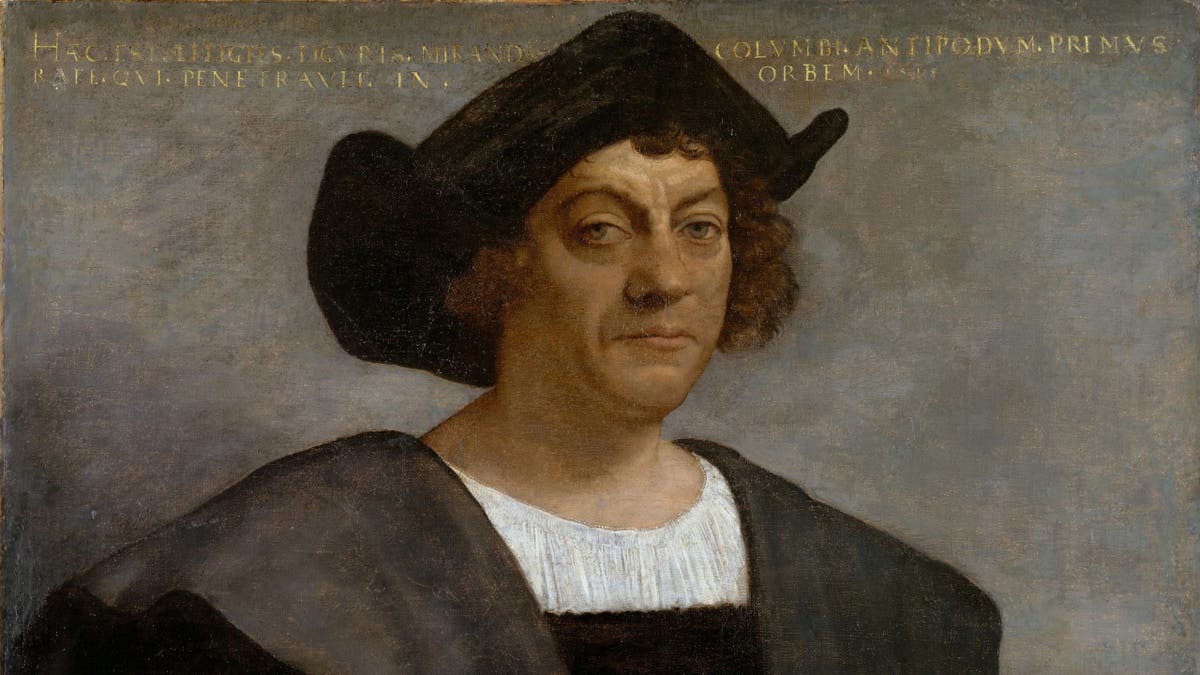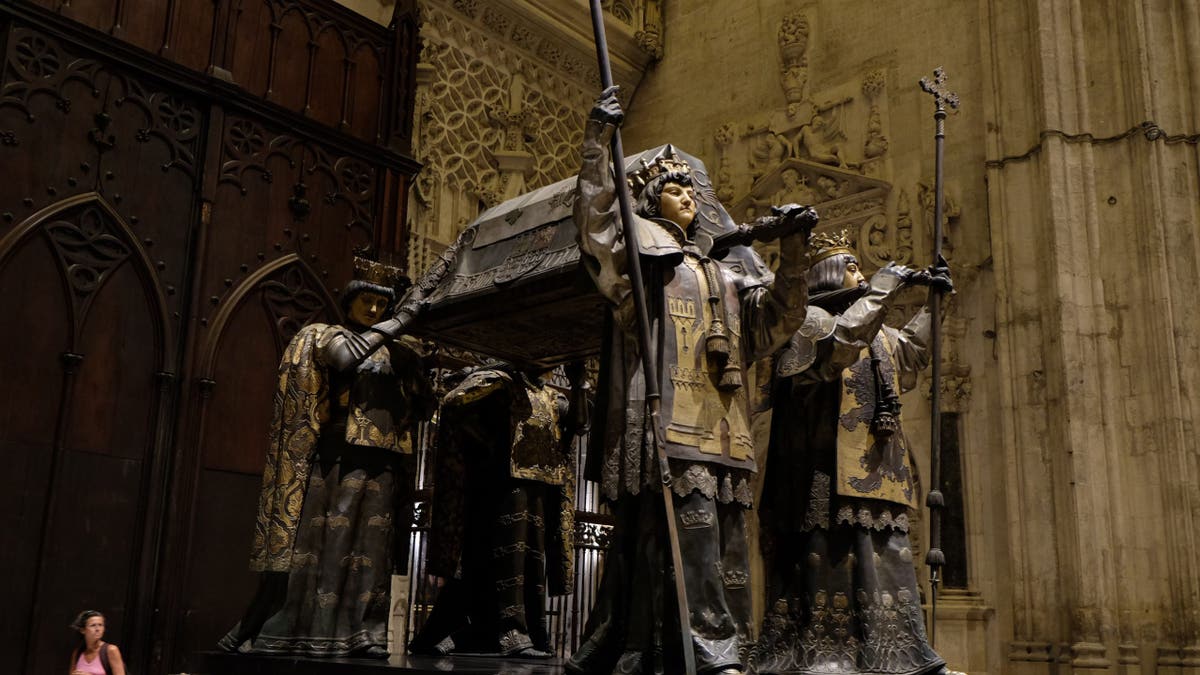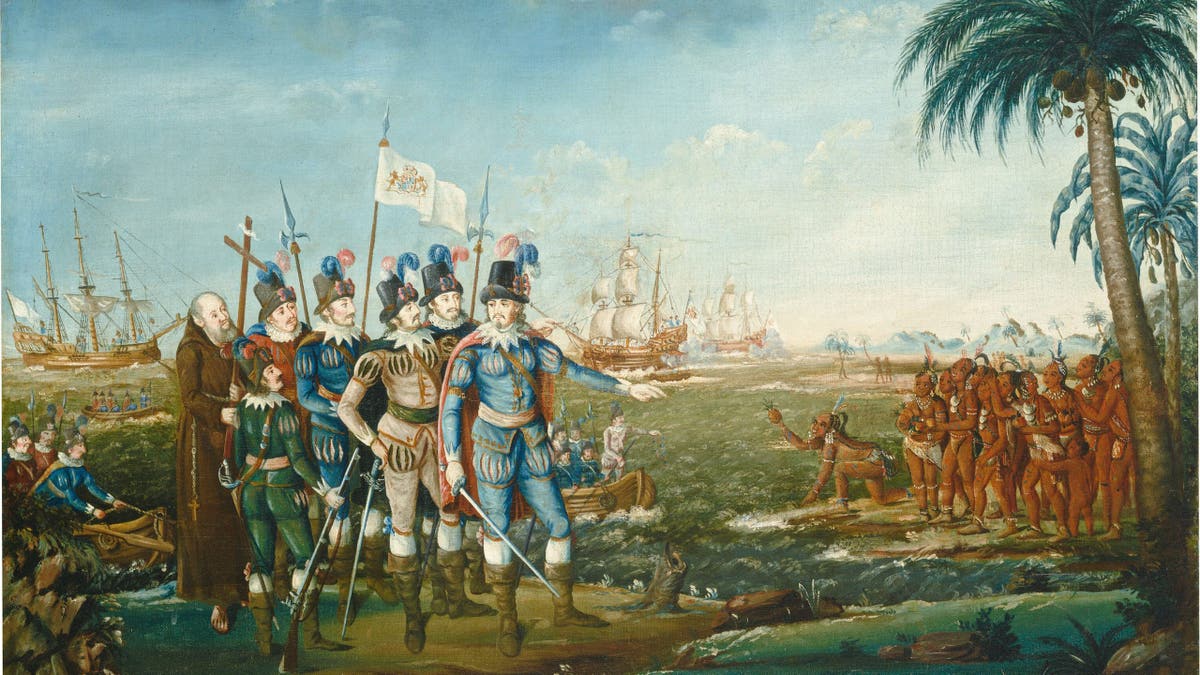Fox News Flash top headlines for October 13
Fox News Flash top headlines are here. Check out what's clicking on Foxnews.com.
Spanish scientists announced in a new documentary that first aired on Saturday that DNA analysis shows the 15th-century explorer Christopher Columbus was a Sephardic Jew from Western Europe.
The documentary titled, "Columbus DNA: The true origin," which aired on Spain's national broadcaster TVE, showcases the research of a 22-year investigation led by forensic expert Miguel Lorente, Reuters reported.
Lorente and his team tested samples of remains buried at Seville Cathedral, long believed to be Columbus' final resting place, though the claim had been contested. Researchers compared the DNA with those of known relatives and descendants of the navigator who led trans-Atlantic expeditions for the Spanish crown from the 1490s onward, inducing European exploration and colonization of the Americas.
DEFACED COLUMBUS STATUE THAT WAS THROWN INTO A VIRGINIA POND FINDS MORE WELCOMING HOME IN NYC SUBURB

Portrait of Christopher Columbus, 1519. Found in the collection of Metropolitan Museum of Art, New York. Artist : Piombo, Sebastiano, del (1485-1547). (Fine Art Images/Heritage Images/Getty Images)
"We have DNA from Christopher Columbus, very partial, but sufficient. We have DNA from Hernando Colón, his son," Lorente said in the documentary. "And both in the Y chromosome [male] and in the mitochondrial DNA [transmitted by the mother] of Hernando there are traits compatible with Jewish origin."
Reuters reports that approximately 300,000 Jews resided in Spain before the "Reyes Catolicos," Catholic monarchs Isabella and Ferdinand, compelled Jews and Muslims to convert or face exile. The expulsion of Jews from Spain took place in 1492, the same year as Columbus' famed first voyage.

The tomb of Christopher Columbus in Seville Cathedral on June 25, 2016. (Kaveh Kazemi/Getty Images)
WILL JULY 4TH, LIKE COLUMBUS DAY, SOON SIMPLY DISAPPEAR?
The word Sephardic is derived from Sepharad, or Spain in Hebrew.
Columbus was traditionally believed to have come from Genoa, Italy, though historians also had theorized him as being a Spanish Jew or perhaps Greek, Basque, Portuguese or British. Lorente's study analyzed 25 possible locations, but ultimately could only conclude that Columbus was born in Western Europe, Reuters said.

First Landing of Christopher Columbus, 1800/1805. Artist Frederick Kemmelmeyer. (Heritage Art/Heritage Images via Getty Images)
Columbus died in Valladolid, Spain, in 1506, according to Reuters.
His remains were brought to the island of Hispaniola – currently home to the Dominican Republic and Haiti – in 1542, where he wanted to be buried, and later to Cuba in 1795. Authorities long believed Columbus' remains were ultimately taken back to Spain, to Seville in 1898.
CLICK HERE TO GET THE FOX NEWS APP
Lorente said his research confirmed that the remains at Seville Cathedral are indeed those of Columbus.
"The outcome is almost absolutely reliable," Lorente said.


